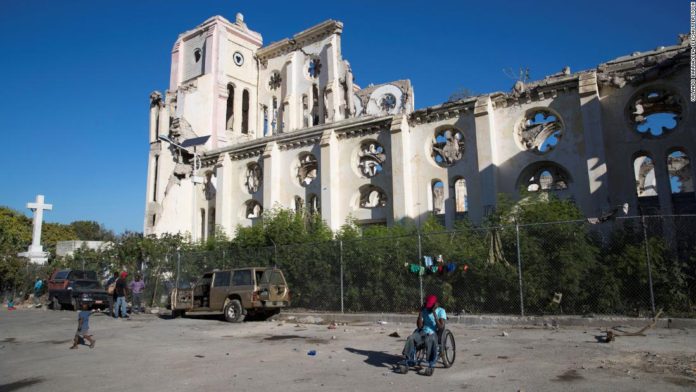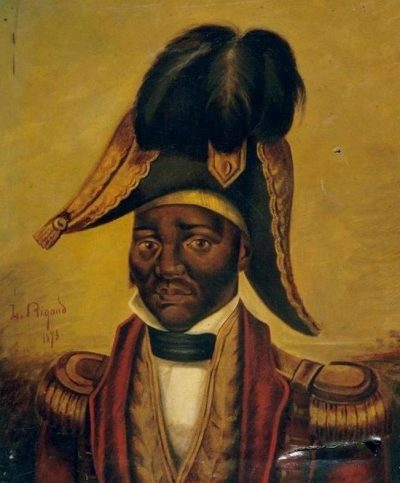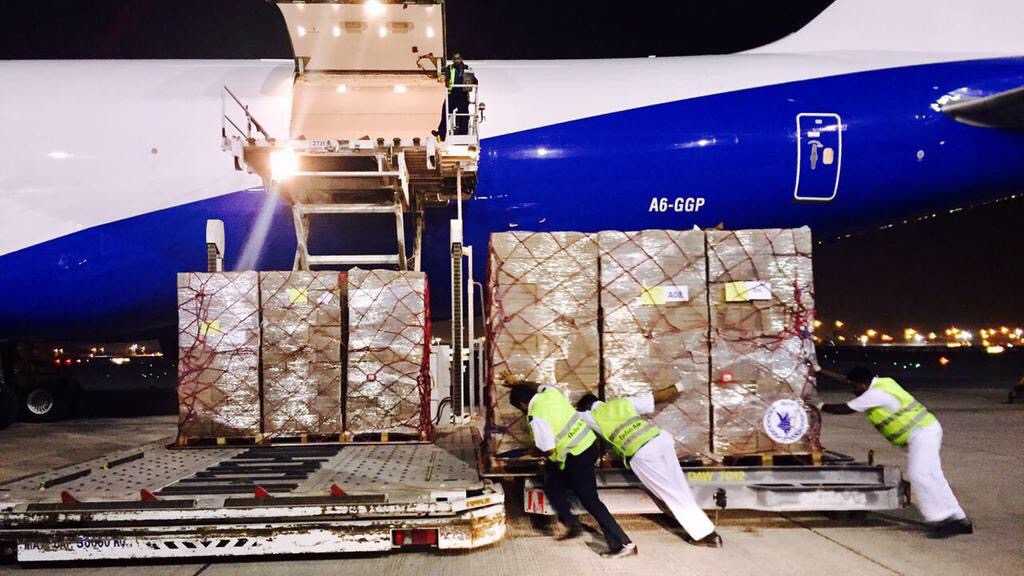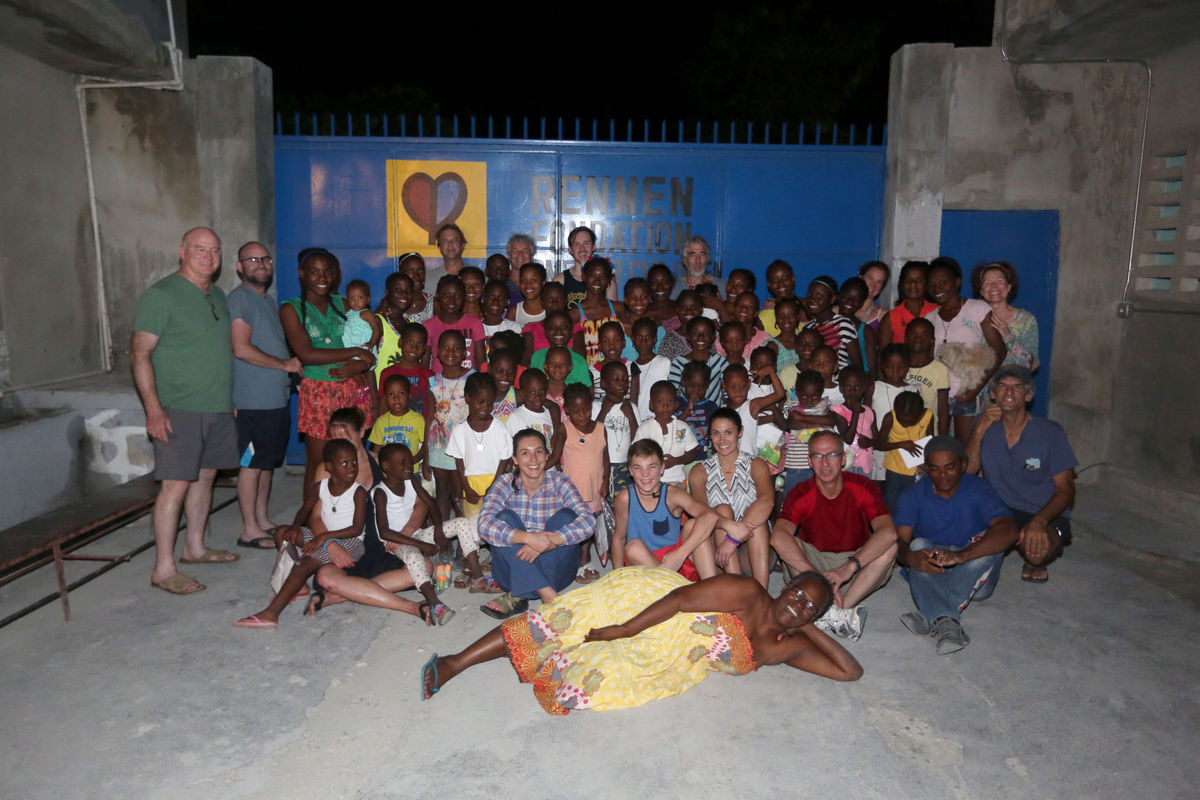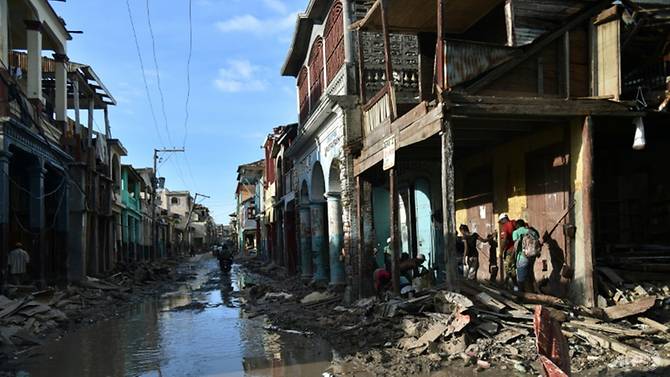Ten years ago today a massive earthquake struck Haiti, transforming capital city Port-au-Prince into a nightmare in seconds. Some 70,000 people would be buried within a week’s time. Hundreds of thousands more would follow them to the grave.The devastating force of the 7.0 quake on January 12, 2010, split the country’s history into a before, and an after. Before had been a long, tangled history of dictatorship, occupation and resistance, shot through with the pride of a slave revolution that defeated Napoleon Bonaparte’s army. After was unimaginable — a blank slate.”I think they just dropped a bomb on Port-au-Prince,” is what Francoise Chandler, a local UNICEF communications officer, told her daughter after the first tremor struck. She had just picked her up from school.”Everything was shaking, and there was a lot of noise. I thought it was like September 11 in New York, because I had been in New York in that period,” Chandler says. Thick dust rose in the air around their car.”Are we going die?” she remembers her daughter asking. Chandler replied, “I don’t have the answer to that, but if we’re going to die, we’ll die together.”
Her daughter stopped asking questions then, she says.
Hope and hopelessness
According to the US Geological Survey, the earthquake itself lasted less than 30 seconds. The immediate aftermath was horrifying. But an outpouring of solidarity within the country, and between Haiti and the rest of the world, gave many Haitians hope.”The world really did come together around Haiti,” says CNN’s Sanjay Gutpa, who covered the aftermath extensively and even treated injuries while on the ground. “Not every part of the world, but I think if you were to turn on your televisions, if you were to read the newspaper, if you were to talk to your friends, colleagues at work, there was this collective outpouring of support and compassion for Haiti.”
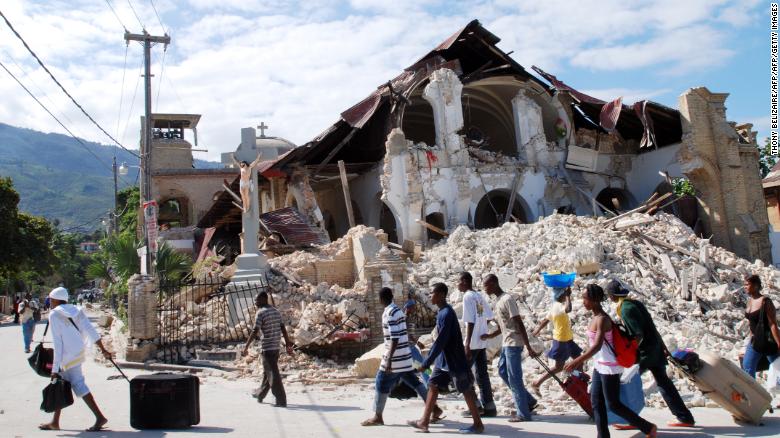
People walk by the collapsed Sacre Coeur Church in Port-au-Prince two days after the earthquake that devastated Haiti on January 12, 2010.The world sent firemen from New York City, rescue workers from Iceland, hospital tents from Israel, sniffer dogs from China, oil from Venezuela. NGOs that were already in the country leaped into action. Chandler recalls working out of an open-air tent in the days after the quake because the organization’s offices had crumbled.International donors pledged millions, which eventually tallied up to more than $10 billion for reconstruction. The earthquake had been particularly lethal due to the fragile construction of Haiti’s buildings, which crashed down upon their inhabitants.”Right after the earthquake I felt a lot of hope, because I thought emerging from the catastrophe would make everyone a better person in the service of this country,” says Harold Prévil, an obstetrician and head of Sacre Coeur hospital in Haiti’s northern city of Milot.But a decade later, he and many others tell CNN they are now disillusioned and have far less hope for their country than they did in the gory aftermath of the earthquake.
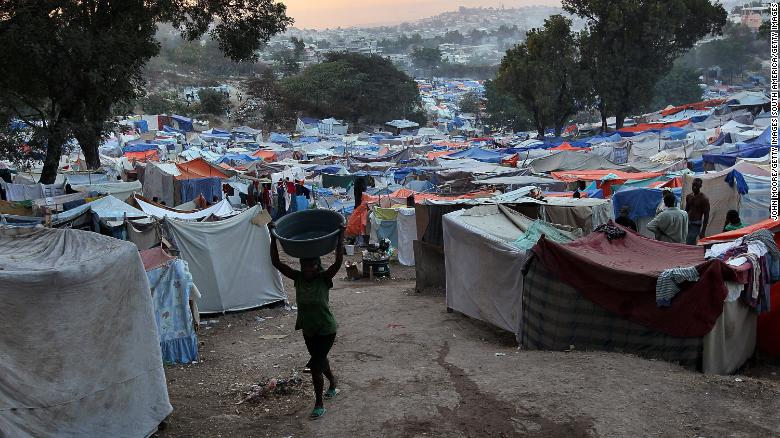
The earthquake left many thousands homeless and turned large parts of Port-au-Prince into refugee camps.”A lot of money was spent after the earthquake, but the results are meager,” Haitian President Jovenel Moise told CNN in an interview Sunday.Moise has publicly acknowledged how little Haiti had had moved forward in the past decade. “Despite our best efforts to rebuild after the earthquake, the scars of this tragic event remain,” he said in a statement on Saturday. “Ten years on, we still lack the basic infrastructure and services to support the people of our country.”
Haitians are ‘living with permanent stress’
Parts of Haiti that were destroyed in 2010 still have not been rebuilt, including the seat of government, the National Palace. And there is little sign that buildings which have been reconstructed are structurally sound enough to keep inhabitants safe through the next earthquake.Whiplashed between disasters both natural and political over the past decade, many Haitians have not had a chance to rebuild mentally or emotionally either, says Marline Naromie Joseph, a Haitian psychologist who has worked with Medecins sans Frontieres (Doctors Without Borders) for 12 years. She was on the frontlines of emergency medicine in the aftermath of the quake, working with patients who had lost limbs, children who had lost their parents and colleagues who had borne witness to the quake’s horrors.Joseph recalls witnessing the first bodies being collected in a city street on the day after the earthquake.”The sound that the bodies made falling into the truck was nauseating,” she says. Further along that same road, workers were separating the dead into piles of children and adults, she recalls — an image which would return to her every time she walked on that street for years and which she eventually realized was evidence of her own trauma.Haiti Earthquake Fast Facts“Even though there were no longer the children, no longer the dead, it was as if it were the first day that I was seeing them,” she says. “My brain had saved this image and became stuck on it.”Some patients still have flashbacks to the sensation of the earth moving beneath their feet when revisiting certain settings — like the hospital’s operating room, she says.According to Joseph’s diagnosis, the country’s misfortunes over the past decade have piled stress upon trauma. In the years since the earthquake, the country has been pounded with hurricanes, floods and drought. It’s also been betrayed by human error — tied to a devastating cholera epidemic, for example — and government corruption that has sparked Haiti’s current political unrest.”We can live with stress, but living with permanent stress will not leave the body without consequence. Eventually, you fall directly into exhaustion,” says Joseph, who notes she has observed more mentally ill people living on the streets than before the earthquake.
The country is crippled by hunger, inflation and fuel shortages
One particularly bitter frustration on the earthquake’s 10-year anniversary is how weakened the country’s economy and infrastructure seem to be.”Ten years after, I am a physician, I am the chief executive officer of a 210-bed facility, but believe me, I am hopeless,” says Prévil, the doctor. “Haitians have not had the opportunity to do things differently and better.”Some things are better. Haiti’s medical system has widened since the quake, and UNICEF reports that no new cholera cases have been diagnosed since February last year.
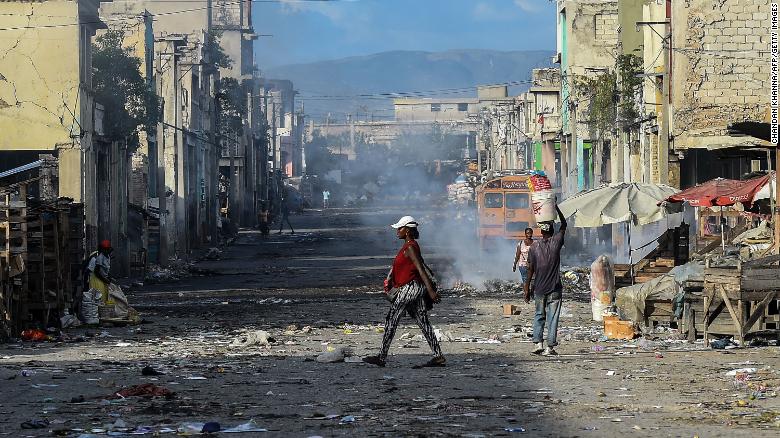
People walk in downtown Port-au-Prince on December 20, 2019. The country’s infrastructure remains in dire need of repair.But Prévil and Joseph both say that the country’s medical and mental health resources would nevertheless be insufficient for another disaster on the scale of the 2010 earthquake.”I would not say we have an institution capable of dealing with all the psychological trauma of another catastrophe like that,” Joseph says.The country is currently gripped by skyrocketing inflation, while fuel shortages slow the gears of industry and government. According to a new report by the UN’s disaster relief agency OCHA, rising prices mean even basic supplies are now out of reach for the poor.Hunger also threatens Haiti now. Forty percent of Haitians will face food insecurity by March, the agency predicts. For least 1 in 10, food insecurity will reach “emergency levels.”In his Saturday statement, Moise rebuked the rest of the world for failing to follow through on its promises.”The initial flurry of attention received from the international community quickly quieted down, with many of the financial pledges not delivered — causing devastating consequences for our recovery,” he said.”Little of the aid that was received ended up in Haitian hands and much of the money that was so generously given was not spent on the right projects and places,” Moise added, echoing a common criticism that aid money focused on short-term relief rather than sustainable, long-term systems.By 2012, $6.4 billion of the more than $10 billion pledged had been disbursed, according to a report by Paul Farmer, a Harvard medical anthropologist who served as the UN’s Deputy Special Envoy for Haiti.And while there is little consensus over how much more of the money has been spent, the report on the first two years of spending supports Moise’s point. It noted that “less than 10 percent was disbursed directly to the [Government of Haiti] using its systems; less than 0.6 percent was disbursed directly to Haitian organizations and businesses as program grants.”
Claims of corruption have fueled mistrust
What Haiti’s government has done with the funds it had at its disposal is also a cause for complaint for many citizens.
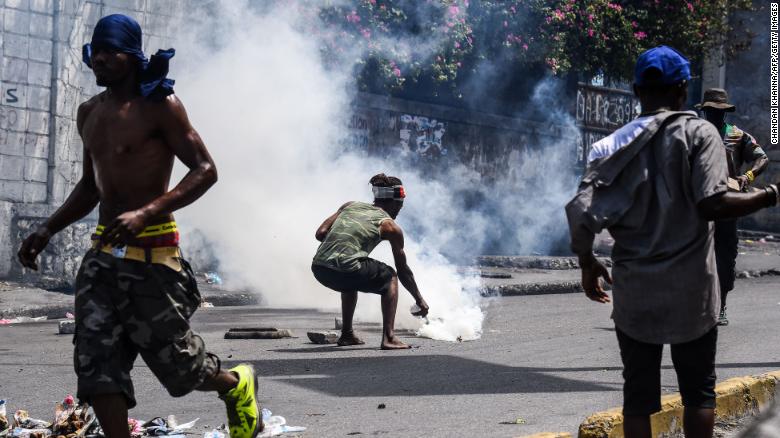
A demonstrator douses a tear gas canister with water during a protest demanding the resignation of President Jovenel Moise in Port-au-Prince on September 27, 2019.For nearly two years now, Haiti has been in political crisis — sometimes punctuated with country-wide lockdowns — over dissatisfaction with the government and how it has dealt with allegations of extraordinary corruption.The protests were sparked by a fuel price hike and an official report alleging that past administrations had wasted millions of dollars intended for critical infrastructure projects, paying through the nose for contracts on new roads and buildings that went entirely unbuilt, in some cases. That money, stemming from a pre-earthquake deal with Venezuela known as PetroCaribe, will eventually have to be repaid by Haiti’s next generation.”What frustrated me a lot and made me feel really sad and sick was that I thought that the Haitian people and the Haitians who were in charge of the country would have taken [the earthquake] as an opportunity to make the country better,” says Prévil.”But it has not happened. My leaders have become more selfish, they have been robbing more. So instead of taking the opportunity to change the country, they’ve made it worse.”Haiti has never come out of the darkness of the 2010 earthquake, says Etzer Emile, a Haitian economics researcher and entrepreneur in Port-au-Prince who identifies himself as one of the activists calling for change. He credits the PetroCaribe scandal with drawing local corruption into focus and creating a movement for change, disruptive as it is.
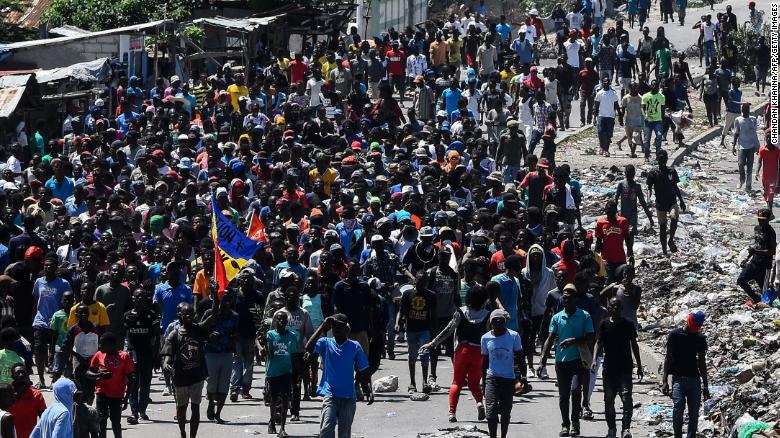
People march in Cite Soleil during the anti-government protest on September 27, 2019.”You know, that can make us feel (like) … there’s something actually we had, and we didn’t really take advantage of it.”Now that the government has publicly documented funds lost or disappeared, Emile says the numbers are accessible in a way that they weren’t before. They also can be shared easily thanks to social media, which has fanned outrage and calls for change — including for Moise’s resignation — as anti-corruption activists accuse the President of turning a blind eye to the PetroCaribe allegations.Moise told CNN that fighting corruption is still a priority of his administration and said that the past months of political unrest have exacerbated Haiti’s economic problems.”We need the same solidarity we had after the earthquake,” he said, emphasizing this time he means solidarity with “the actors who are putting the country on a path to change, to economic growth, and development.”
What will happen next
Haiti is considered one of the most vulnerable countries to climate change, and its location in the Caribbean lies squarely in the middle of a hurricane belt. As it looks toward the future, how Haiti can prepare for the next great disaster — and what kind of help it might receive — are urgent questions.Emile believes Haiti no longer commands the same interest and compassion that it did in 2010.”If Haiti’s reconstruction had been a success, maybe we could have been interesting to people as a case study. But it was a failure, so people feel fed up … they don’t even want to talk about it that much,” he says. “The further we go from the earthquake, the less interested people are in Haiti.”The drop in interest is, in fact, measurable: A 2019 UN plan for humanitarian aid to Haiti only managed to raise a third of the funding it needed.Vania André, publisher of the Haitian Times, a paper of record for the Haitian diaspora, says that the earthquake galvanized the loyalty — and a certain defiance — of generations of Haitian Americans.
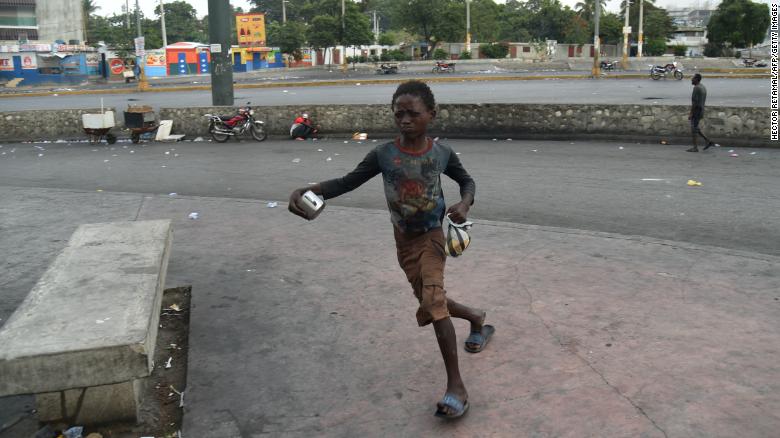
A boy flees from tear gas during clashes with Haitian police in Port-au-Prince on February 15, 2019.It became common to hear stories of Haitian-Americans “leaving their corporate jobs in DC or Florida and moving to Haiti to create a nonprofit,” she says. “They wanted people to see that Haiti is much more than the devastation that happened with the earthquake, that Haiti is much more than this republic of NGOs.”But she also notes that many of those same foreign-born idealists did not stay long, discouraged by the skepticism they encountered and the difficulties of doing business.As the flow of foreign aid money ebbs and Haitians lose faith in their government, some say they only thing they can rely on is their own experience.Prévil, the obstetrician, says another earthquake would be Haiti’s “worst nightmare” and that he still gets flashbacks to the feeling of the ground moving under his feet. But at least he now knows how to react.”If there is another earthquake, I have a good strong desk. I will go under the desk,” he says. “And then I will call for my contingency plan and start right away to take care of as many people as I can. Because I know what to do now.”




























![Phyllisia Ross – KONSA [Official Music Video]](https://haitiville.com/wp-content/uploads/2014/08/phyliisia.jpg)
